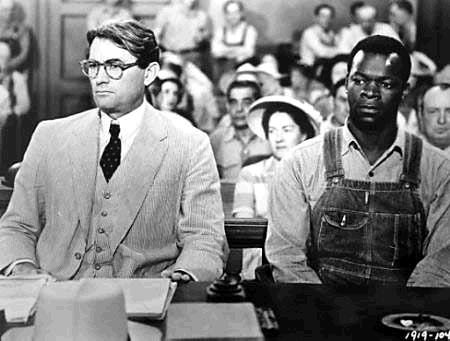Harper Lee, the author of the iconic To Kill A Mockingbird, has died at the age of 89. The novel tells the story of the heroic lawyer, Atticus Finch, who defends an innocent black man accused of raping a white girl in segregated Alabama. The novel, scandalously, was removed from the GCSE syllabus recently to make room for more ‘English’ literature about drawing rooms and manners. It’s a shame, as generations of students have been given a genuine insight into the legacy of slavery and the pernicious effects of racism and have, I suspect, become better people as a result. Lee, interestingly, grew up in the same small, Southern town as Truman Capote (author of Breakfast at Tiffany’s) and helped him to research his seminal non-fiction crime novel, In Cold Blood (which we study on the Crime Scene America module).

Atticus Finch and Tom Robinson in the Oscar winning film of To Kill A Mockingbird (WikiCommons)
